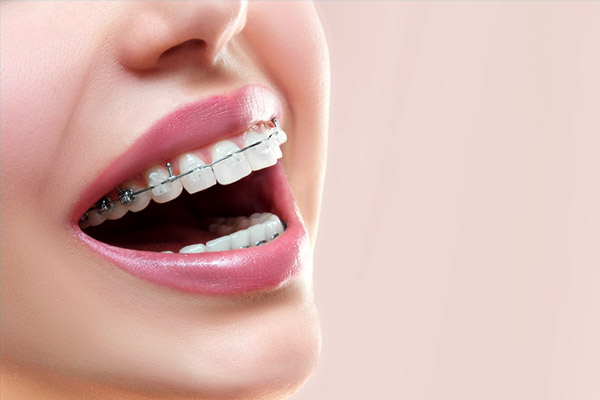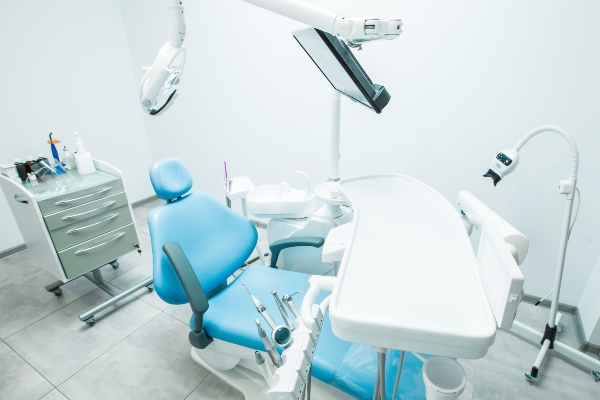Dental Crowns as a Cosmetic Dentistry Solution

Dental crowns are arguably the most used restorations in cosmetic dentistry. A crown is a cap that goes over the visible part of a tooth. It covers the tooth in its entirety, restoring its appearance as well as its function. Crowns also serve as a protective barrier that keeps teeth under them safe from irritants in the mouth like oral bacteria, acids and saliva.
Crowns are used in cosmetic dentistry to tackle a wide range of issues, like:
- Teeth that have turned gray due to tooth decay
- Deformed teeth
- Short teeth
- Gaps between teeth
- Broken, fractured or chipped teeth
How crowns are fitted in cosmetic dentistry
The installation of a dental crown is a permanent procedure that cannot be reversed. It requires the removal of about 1-2mm of tooth enamel. This creates a better fit for the crown. The dentist will then push an impression on the patient's tooth or use digital images to create a 3D model of the tooth. The impression and data are sent to dental technicians who create the patient's customized crown in a lab.
The dentist will fit the patient with a temporary crown to protect their tooth while their crown is being made. Temporary crowns are typically made out of plastics and they are created on-site. It can take up to two weeks for the customized crown to be ready.
During the second appointment, the dentist will remove the temporary crown and place the customized crowns. Adjustments will be made as needed. Crowns can be color-matched with the patient's teeth so the customized crown should blend right in. It covers up any flaws on the tooth and restores the patient's ability to chew with it.
The popular types of crowns used in cosmetic dentistry are:
- Porcelain dental crowns: These crowns provide the best aesthetics as they have the translucence of natural teeth. They also have a similar texture to real teeth. It allows these crowns to blend in with the patient's teeth, making them a great option for front teeth. The main downside of these types of crowns is the fact that they are the least durable type. They are typically not an option for teeth that regularly handle heavy bite forces like the molars
- Porcelain fused to metal: These crowns combine some of the properties of metal crowns — which are the most durable type of crown — and porcelain crowns. They provide the wearer with a natural-looking tooth while the metal base increases its durability. These types of crowns typically require the dentist to remove a larger portion of enamel
- Metal alloys: Crowns can also be made with alloys that contain mostly silver, gold or platinum. These are the most durable types of crowns, but they do not blend in with real teeth. Gold crowns are the most durable type of crown and they do not wear down adjacent teeth like porcelain crowns. These types of crowns are great for back teeth or for people who like the aesthetics of having crowns made from precious metals
Ready for a dental crown?
Call or visit our Everett clinic to learn more about how dental crowns can improve the way your teeth look as well as function.
Request an appointment here: https://gkdentaloffice.com or call GK Dental PC at (617) 826-6075 for an appointment in our Everett office.
Check out what others are saying about our services on Yelp: Read our Yelp reviews.
Recent Posts
Improperly spaced teeth can cause an array of physical and mental health issues. Invisalign® clear aligners can help. Many people of all ages use Invisalign trays today to discreetly and efficiently correct their smiles. These transparent corrective treatments can be an especially great option for teenagers.Below are some reasons why teens might decide upon Invisalign…
An emergency dentist provides urgent care for individuals experiencing sudden dental issues that require immediate attention. Understanding what qualifies as a dental emergency can help patients determine when to seek professional help. While some dental problems may seem urgent, others can be addressed with routine care. Whether due to a sudden injury, severe pain, or…
If you have severe dental pain, an infection, or an injury, seeing an emergency dentist can give you immediate relief. However, following the recommended care instructions after professional treatment is important to ensure proper healing and avoid potential complications. Following these post-treatment guidelines can lead to a smoother recovery and better overall oral health.Following a…
Choosing a family dentist as your next dental provider is one of the best decisions you can make for every family member. However, there are multiple factors to take into account when asking questions. Here are a few potential questions to consider when searching for a family dentist.Most feel comfortable starting with questions about their…


